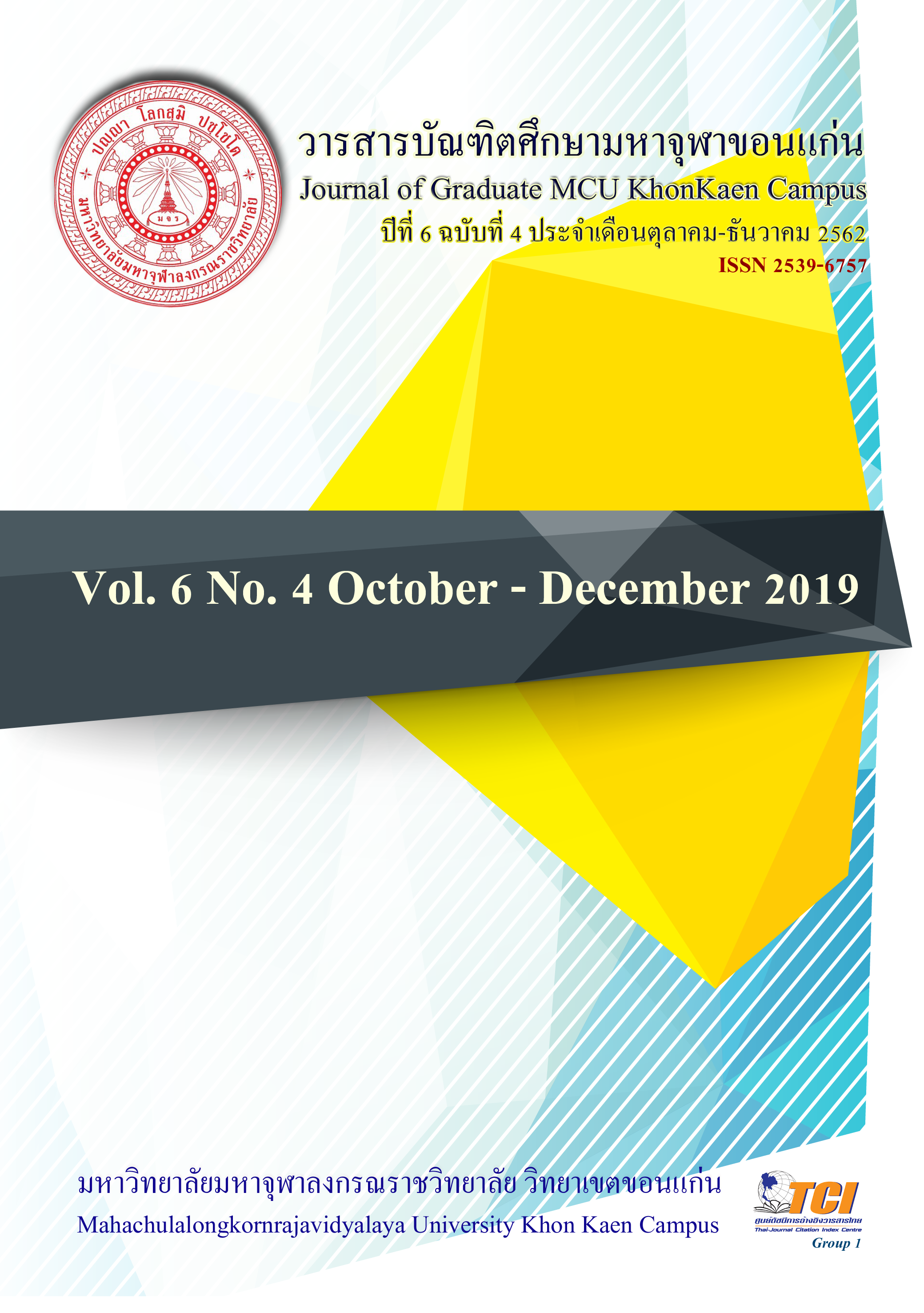คุณค่าการปกครองแบบธรรมาธิปไตยตามนัยพุทธจริยศาสตร์
Main Article Content
บทคัดย่อ
รูปแบบการปกครองแบบธรรมาธิปไตยนั้น คือยึดหลักธรรมาธิปไตยเป็นบรรทัดฐานกล่าวคืออำนาจสูงสุดขึ้นในการปกครองขึ้นอยู่กับธรรม โดยอาศัยความเห็นที่ชอบธรรมหรือเป็นความเห็นที่ถูกต้องด้วยธรรมแล้วก็ถือเอาตามนั้นๆ โดยในพุทธปรัชญาการเมืองนั้น เราอาจกล่าวได้ว่า “รัฐบาลไม่ใช่โดยประชาชน ของประชาชน และเพื่อประชาชน แต่เป็นรัฐบาลโดยธรรม ของธรรม และเพื่อความสุขสมหวังในประโยชน์ของประชาชน เพราะธรรมคืออำนาจสูงสุดในโลกจึงเรียกว่า ธรรมาธิปไตย” ตามนัยทางพุทธจริยศาสตร์ได้เสนอคุณค่าของหลักการปกครองแบบธรรมาธิปไตย ดังนี้ 1)คุณค่าด้านเศรษฐกิจ เมื่อการปกครองมีหลักธรรมมาเป็นหลักยึดในการทำหน้าที่ของตนอย่างเต็มความสามารถมีการช่วยเหลือพึ่งพาอาศัยอยู่ร่วมกันอย่างสันติมีความเป็นอยู่ที่ดี ก็จะให้คนในสังคมทำหน้าที่ตนได้อย่างเต็มที่ 2) คุณค่าด้านสังคม เมื่อคนในสังคมรู้ว่าอะไรเป็นธรรม อะไรเป็นประโยชน์ต่อสังคมส่วนรวม ก็ทำให้คนจะให้สังคมสามารถที่จะใช้ชีวิตอยู่ร่วมกันได้อย่างสงบสุข เกื้อกูลกันและกัน มีความสามัคคี ปราศจากความขัดแย้ง คนในสังคมจึงจะเป็นพลเมืองที่ดีของสังคม และประเทศชาติ 3)คุณค่าด้านการปกครอง ด้วยอาศัยคุณธรรมและจริยธรรมในการทำหน้าที่ เป็นปัจจัยที่สำคัญที่ทำให้เกิดความมั่นคง มีเสถียรภาพและความเป็นระเบียบเรียบร้อย เพราะธรรมนั้นสามารถควบคุมจิตใจไม่ให้ใช้อำนาจเกินขอบเขต โดยการตั้งตนชอบศีลธรรมอันดีงาม เพื่อให้เกิดคุณประโยชน์ต่อตนเอง สังคมและประเทศเพื่อการพัฒนาอย่างยั่งยืนมั่นคงสืบต่อไป
Article Details
เอกสารอ้างอิง
Buddhadasa Phikkhu. (2005). Dhamma and Politics. Bangkok: Health Mind Publishing.
Prof. S.N..(1999). Modern Comparative Politics. New Delhi: Prentice Hall of India Prive Ltd.,
Prof. K.C. Mishra.(1998). Political Science Theory. Delhi: Ajanta PraKashan.
Jirachok (Banphot) Veerasai and Faculty. (1997). General Political Science.Bangkok: Ramkhamhaeng University Press.
Decho Sawanon. (2002). Political Dictionary. Bangkok: Window Publishing to the World Wide Co.
Sukhum Nuansakun and Wisit Thaweset.(1998). Thai Government Politics. Bangkok: Ramkhamhaeng University
Press.
Royal Institute.(2005). Royal Academy Dictionary. Bangkok: Nanmee Book Publishing.
Wirat Thiraphanethi.(PPS).Buddhist Philosophy of Governance. Bangkok: Printing House, Duangkaew Publishing
House.
Buddhadasa Phikkhu. (1988). Politics is Dharma. 2nd edition. Bangkok: Arun Wittaya Publishing.
Thinphan Nakhata. (1986).Buddhism and Thai society. Bangkok: Alphabet Charoenthat.
Preecha Changkhwan Yuen. (1996).Political views of Buddhism, Bangkok: Chulalongkorn University.

